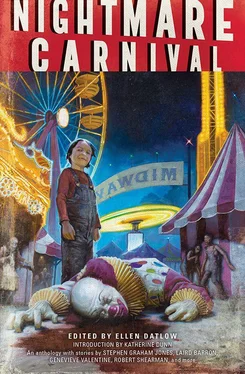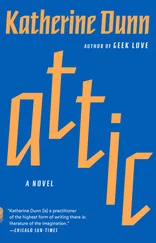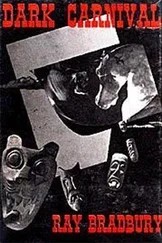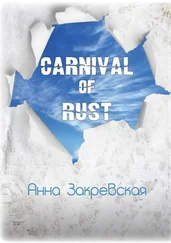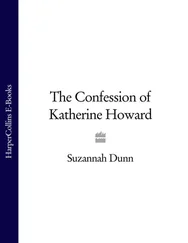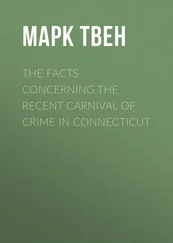What happened next, children, is common knowledge, and not part of tonight’s story. The Orchid Girl was right: the people of Hob’s Landing were frightened of the mansion and did not follow them there. Wormcake and his friends found a new life inside. They found me, and the rest of the Frozen Parliament, up in the attic; they found the homunculus in the library; and of course, over time, they found all the secrets of the strange old alchemist who used to live there, which included the Orchid Girl’s hidden history. Most importantly, though, they made themselves into a family. Eventually they even fashioned a peace with Hob’s Landing, and were able to build relationships with people in the town.
That was the last night the Cold Water Fair was ever held in Hob’s Landing. With fourteen dead children and a family of monsters moved into the old mansion, the citizens of the town had lost their taste for it. For the better part of a generation, there was little celebration at all in the little hamlet. Relations between the Wormcake family and the townsfolk were defined by mutual suspicion, misunderstanding, and fear. Progress was slow.
Thirty years later, relations had repaired enough that Mr. Wormcake founded the Skullpocket Fair. To commemorate the night he first came to Hob’s Landing, found the love of his life, and began his long and beneficial relationship with this town, where he would eventually become the honored citizen you all know him as today.
How wonderful, yes, children?
And now, at last, we come to why the Maggot called you all here!
“So many lies.”
This is what Mr. Wormcake tells me, after Uncle Digby ushers the children from the drawing room. The sun has set outside, and the purpling sky seems lit from behind.
“You know, he tells the story for children. He leaves out some details. That night in the freak tent, for instance. The people gathered around the mermaid were terrifying. There was a feral rage in that room. I didn’t know what it was at the time. I was just a kid. But it was a dark sexual energy. An animal urge. They slapped their palms against her tank. They shouted at her. Said horrible things. She was curled away from them, so they couldn’t see her naked, and that made them angry. I was afraid they would try to break the glass to get at her. I think it was only the fear of Bruno the cannibal, in the other room, somehow getting out too, that stopped them. I don’t know.
“And that bit about me recognizing my ‘destiny’ when I saw the Orchid Girl — Gretchen. Nonsense. What child of that age feels romantic love? I was terrified. We all were. We’d just seen a flower disguised as a girl. What were we supposed to think?”
“I’m curious why you let Uncle Digby call her the Orchid Girl to the kids, when the name obviously annoys you.”
“It’s simplistic. It’s her freak name. But you humans seem so invested in that. She was no more ‘the Orchid Girl’ than I’m ‘the Gentleman Corpse.’ I’m not a corpse at all, for god’s sake. But when we finally decided to assimilate, we believed that embracing the names would make it easier. And the kids like it, especially. So we use them.”
“Is it hard to talk about her?” Probing for signs of blasphemy.
“No,” he says, though he looks away as he says it. The profile of his skull is etched with lamplight. He goes on about her, though, and I start to get a sick feeling. “He would have you believe that she was a princess in a castle, waiting to be rescued by me. It’s good for mythmaking, but it’s not true. She did need rescuing that night, yes, but so did Bruno. So did the mermaid. He doesn’t talk about my ‘destiny’ with them, does he?”
I don’t know what to say.
“Nothing but lies. We didn’t want to go to the mansion. We wanted to go home. When we saw our home spilling into the sky, transfigured by the Extinction Rite. we were terrified.”
I shake my head. “You were children. You can’t blame yourself for how you felt.”
“I was frightened for my parents.”
I put a hand up to stop him. “Mr. Wormcake. Please. I can understand that this is a moment of, um. strong significance for you. It’s not unusual to experience these unclean feelings. But you must not indulge them by giving them voice.”
“I wanted my parents back, Priest.”
“Mr. Wormcake.”
“I mourned them. Right there, out in the open, I fell to my knees and cried.”
“Mr. Wormcake, that’s enough. You must stop.”
He does. He turns away from me and stares through the window. The bay is out there somewhere, covered in the night. The lights in the drawing room obscure the view, and we can see our reflections hovering out there above the waters, like gentlemanly spirits.
“Take me to the chapel,” I tell him quietly.
He stares at me for a long moment. Then he climbs to his feet. “All right,” he says. “Come with me.”
He pushes through a small door behind the chess table and enters a narrow, carpeted hallway. Lamps fixed to the walls offer pale light. There are paintings hung here too, but the light is dim and we are moving too quickly for me to make out specific details. The faces look desiccated, though. One seems to be a body seated on a divan, completely obscured by cobwebs. Another is a pastoral scene, a barrow mound surrounded by a fence made from the human bone.
At the end of the corridor, another small door opens into a private chapel. I’m immediately struck by the scent of spoiled meat. A bank of candles near the altar provides a shivering light. On the altar itself, a husk of unidentifiable flesh bleeds onto a silver platter. Scores of flies lift and fall, their droning presence crowding the ears. On the wall behind them, stained glass windows flank a much larger window covered in heavy drapes. The stained glass depicts images of fly-winged angels, their faceted ruby eyes bright, their segmented arms spread as though offering benediction, or as though preparing to alight at the butcher’s feast.
There is a pillow on the floor in front of the altar, and a pickaxe leans on the table beside it.
The Maggot summons fourteen children to the Skullpocket Fair every year. One for each child that died that night in the Cold Water Fair, one hundred years ago, when Hob’s Landing became a new town, guided by monsters and their strange new god. It’s no good to question by what criteria the children are selected, by what sins or what virtues. There is no denying the summons. There is only the lesson of the worm, delivered over and over again: all life is a mass of wriggling grubs, awaiting the transformation to the form in which it will greet the long and quiet dark.
“The church teaches the subjugation of memory,” I say. “Grief is a weakness.”
“I know,” says Mr. Wormcake.
“Your marriage. Your love for your wife and your friends. They’re stones in your pockets. They weigh you to the earth.”
“I know.”
“Empty them,” I say.
And so he does. “I miss her,” he says. He looks at me with those hollow sockets, speaks to me with that borrowed mouth, and for the first time that night I swear I can see some flicker of emotion, like a candle flame glimpsed at the bottom of the world. “I miss her so much. I’m not supposed to miss her. It’s blasphemy. But I can’t stop thinking about her. I don’t want to hear the lies anymore. I don’t want to hear the stories. I want to remember what really happened. We didn’t recognize anything about each other at the fair that night. We were little kids and we were scared of what was going to happen to us. We stood on the edge of everything and we were too afraid to move. We didn’t say a single word to each other the whole time. We didn’t learn how to love each other until much later, after we were trapped in this house. And now she’s gone and I don’t know where she went and I’m scared all over again. I’m about to change, and I don’t know how or into what because I left home when I was little. No one taught me anything. I’m afraid of what’s going to happen to me. I miss my wife.”
Читать дальше
